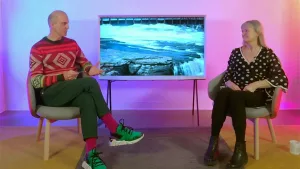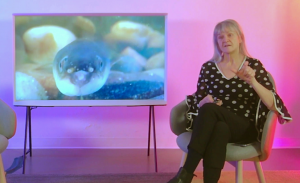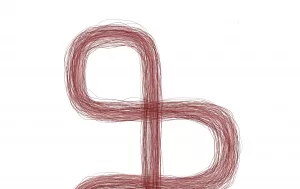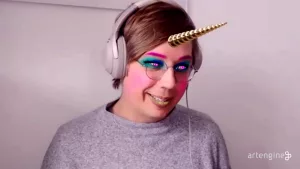In conversation with Cheryl L'Hirondelle (who was in conversation with eels)
Cheryl L’Hirondelle joins us in the Artengine Studio to talk about her conversations with eels and a broader understanding of communicating with the world. After an excellent artist talk on the development her work Nipawiwin Akikodjiwan: Pimizi ohci (which you can check out here), Artengine’s Artistic Director, Ryan Stec, chatted with Cheryl about the works relationship to politics and the Climate Crisis, language and the land and the eels desire for her project.



